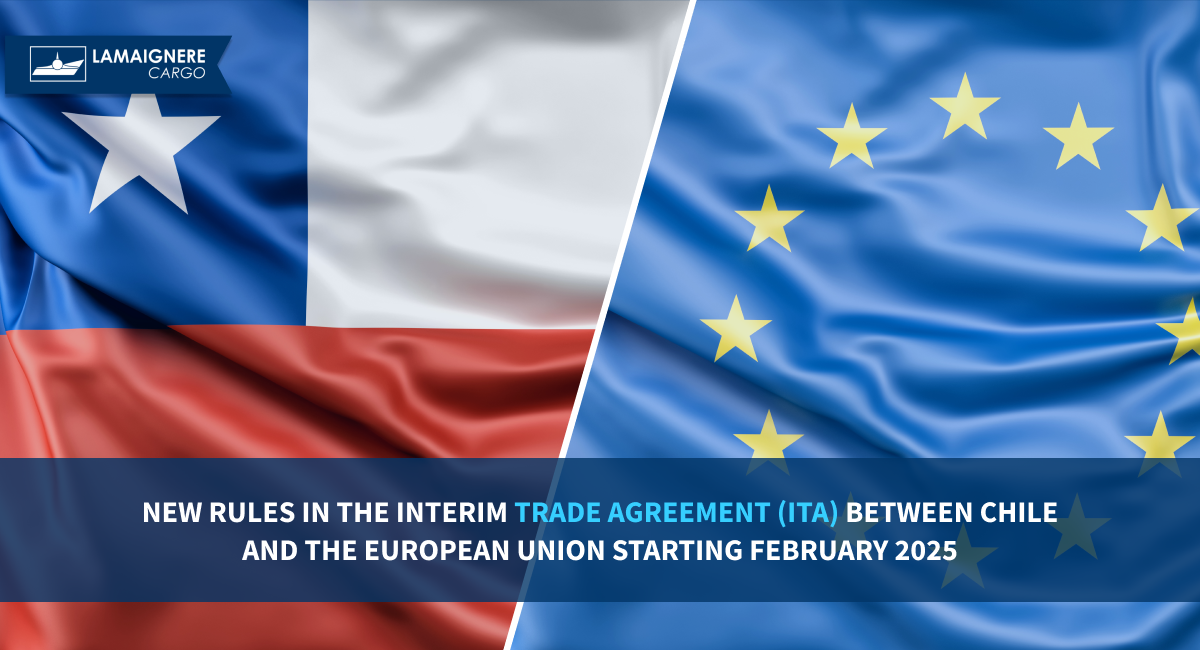WE FIND THE BEST WAY.

At Lamaignere, we are committed to keeping our clients informed about international regulations and agreements that impact global trade. Starting in February 2025, the Interim Trade Agreement (ITA) between Chile and the European Union will come into effect, replacing the previous EU-Chile Association Agreement. This replacement will bring a series of changes that will directly affect trade relations between both parties.
The ITA is key to promoting bilateral trade between Chile and EU member countries. The update of the rules responds to the need to adapt trade conditions to new global dynamics, incorporating aspects such as sustainability, digital trade, and the inclusion of small and medium-sized enterprises (SMEs) in the international supply chain.
End of EUR.1 Certificates:
From now on, traditional EUR.1 certificates and invoice declarations will no longer be valid as proof of preferential origin in trade between the European Union and Chile. Instead, a declaration of origin or importer's knowledge will be used. This change simplifies the process through self-certification, allowing companies to manage their logistics and customs operations more efficiently, optimizing international trade with greater ease.
Introduction of the REX Number:
Authorized exporter numbers under the old Association Agreement will be replaced with the introduction of the new REX system (Registered Exporter System). This change will affect shipments exceeding 6,000 euros, where origin declarations must include this number along with an origin statement in the invoice. For shipments below this value, an origin declaration will suffice without the need for REX registration. This change simplifies the process, as tariff preferences will now be granted through origin declarations from registered exporters or based on the importer’s knowledge.
Update of Rules for Preferential Origin Declarations in 2025:
Starting February 1, 2025, preferential origin declarations for goods in transit, temporary storage, warehouses, or free zones must comply with the new rules established in the ITA. Authorized exporter numbers from the old Association Agreement will no longer be valid, making it essential to adjust declarations to the current system. It is crucial for companies to adapt their processes to these new regulations to avoid disruptions in international trade.
To make the most of these advantages, companies must prepare adequately:
Adapting to these regulations, including the transition from EUR.1 certificates to origin declarations, is essential to avoid issues in customs management and to benefit from more efficient international trade.
For any inquiries, our team at Lamaignere Chile is at your disposal. You can contact us via email at chile@lamaignere.com.
